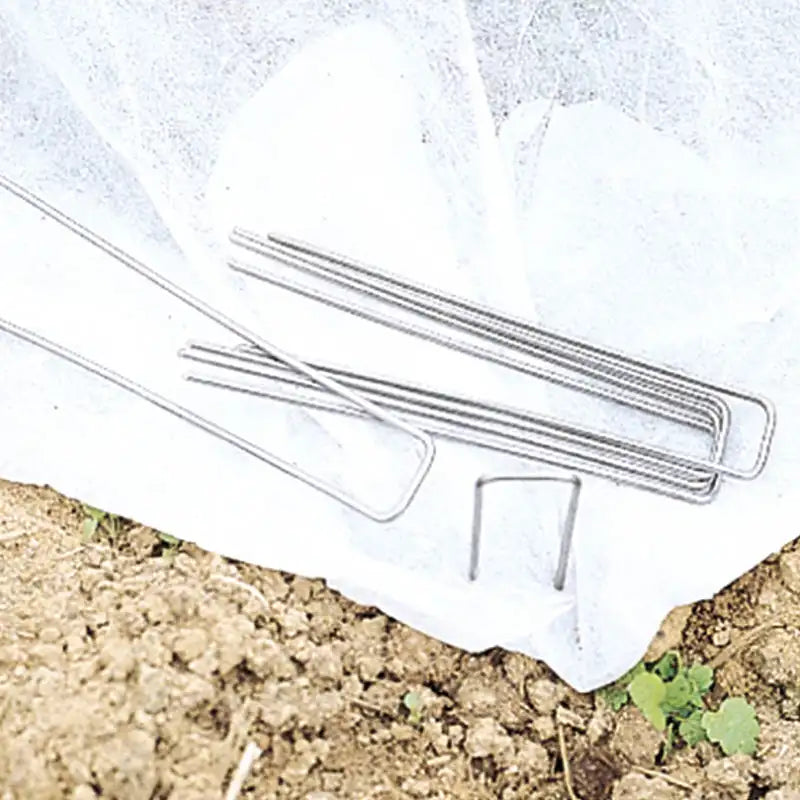Be Warned—Bamboo Will Get You Busted!
Q. Doug in Drexel Hill (PA) writes: "You would do the country a great service by constantly reminding viewers and listeners not to plant bamboo on their property.
"I recently went through a hellish experience with a neighbor who has 'a legacy planting' of bamboo that was started by his father. That bamboo has been invading my property for 15 years. Thankfully, our township just passed a bamboo ordinance.
"However, the "impenetrable barrier" requirement of the ordinance does not specify a depth, like "must be 30 inches deep". My neighbor, after being cited by the township, removed the existing bamboo culms and installed a two-inch-deep {quote} "barrier". This small of a barrier will not work, but the ordinance was not written to require a prescribed depth. Please remind township officials that they need to be specific with the requirements of such an ordinance.
"In addition, no one should be lauding the merits of bamboo. For instance, I am extremely disappointed at Penn State University's large bamboo display in their otherwise beautiful arboretum. They use an elaborate containment system that prevents the bamboo from spreading but fail to let visitors know about the need for a barrier 30 to 36 inches deep. For a university to promote bamboo without describing its extreme confinement needs is negligent. Arboretums need to educate visitors about the requirements necessary to contain bamboo if a homeowner wants this invasive species on their premises.
"Please inform your legion of followers that bamboo is 'bad' when the bamboo growers are not willing to install proper barriers."
A. If this were another topic, I'd be tempted to be cute and say something like "Gee Doug; don't hold back--how to do you really feel about bamboo?" But this is not another topic. This is more like looking at a baby Godzilla and saying "ah--isn't he cute? I'm sure the neighbors won't mind if we bring him home; we have a big yard!"
Fast forward and the neighbor's home is now up on stilts that they did not install (bamboo) and/or the local high-tension lines have been declared an endangered species. If Godzilla is indeed the "King of the Monsters" (a title we here at YBYG totally support), running bamboo is the King of the Monstrous Invasive Plants.
But first, let's back up a bit. There are two basic types of bamboo. The {quote} "good bamboo" is most commonly known as 'clumping bamboo'. Like fescue and ornamental grasses, the clumps will get larger and wider over time (as do many of us) but they will not travel outside of their clumpdom and cause a shed 20 feet away to rise up, fall down and go boom.
That super-power belongs to {quote} 'spreading bamboo'; also known as 'running bamboo', 'arrow bamboo' and many names I cannot speak on the network of Mister Rogers or in print. These tropical but winter-hardy plants form a dense underground root system that shoots 'culms' up out of the ground at varying distances from the mother plant.
'Culm' is the proper name for the stalks you see aboveground, which all terminate in a common root system. When you see a {quote} "forest" of bamboo you're looking at one plant. Think of all the branches on a big tree--but the tree is underground. Those aren't 100 different plants; they're 100 'branches' of the same plant.
...Except that oaks and maples don't get up and walk around.
OK; neither does running bamboo, actually--it runs like its rhizomes were escaping a mugging. Except that it's the mugger.
If running bamboo is planted next door it will not stay next door unless:
• There is a water-filled stream, river, canal or trench in between. As with vampires, bamboo cannot cross over running water.
• There is an impenetrable barrier to advancement, like a sheer cliff or other rocky outcropping.
• A professional rhizome barrier is installed to contain it; or
• You live next to a Pennsylvania Dutchman who will mow down the new shoots on a weekly basis and remark "say now; this ain't too bad; I've had worse."
I know this because I 'inherited' a large stand not too far from my house. But there's a stream in between the bamboo and my home, and despite the stream sometimes running dry in the summer, the bamboo has stayed on the other side for 35 years. In addition, there is a giant rock face behind the stand, our local road is in front of the stand (although some shoots get through, the township just tars them over) and on the fourth side is my excellent neighbor Willard and his invincible mower. "Hey. No Problem."
OK--so where does this leave us, as more and more cities and municipalities are banning bad bamboo. Doug's neighbor is wasting his time with a two-inch barrier, which is clearly not adequate to control these Asian Triffids. But while the bamboo ordinance in Doug's municipality (which I just read) does not specify depth, it also does not bail out. Its specific language requires {quote} "sheathing...at a sufficient depth...to prevent the encroachment...onto neighboring property".
Simply said, if and when new stuff pops up on Doug's side, his neighbor gets popped to the tune of twenty-five bills a day--and has to pay for the removal of the new bamboo.
"I recently went through a hellish experience with a neighbor who has 'a legacy planting' of bamboo that was started by his father. That bamboo has been invading my property for 15 years. Thankfully, our township just passed a bamboo ordinance.
"However, the "impenetrable barrier" requirement of the ordinance does not specify a depth, like "must be 30 inches deep". My neighbor, after being cited by the township, removed the existing bamboo culms and installed a two-inch-deep {quote} "barrier". This small of a barrier will not work, but the ordinance was not written to require a prescribed depth. Please remind township officials that they need to be specific with the requirements of such an ordinance.
"In addition, no one should be lauding the merits of bamboo. For instance, I am extremely disappointed at Penn State University's large bamboo display in their otherwise beautiful arboretum. They use an elaborate containment system that prevents the bamboo from spreading but fail to let visitors know about the need for a barrier 30 to 36 inches deep. For a university to promote bamboo without describing its extreme confinement needs is negligent. Arboretums need to educate visitors about the requirements necessary to contain bamboo if a homeowner wants this invasive species on their premises.
"Please inform your legion of followers that bamboo is 'bad' when the bamboo growers are not willing to install proper barriers."
A. If this were another topic, I'd be tempted to be cute and say something like "Gee Doug; don't hold back--how to do you really feel about bamboo?" But this is not another topic. This is more like looking at a baby Godzilla and saying "ah--isn't he cute? I'm sure the neighbors won't mind if we bring him home; we have a big yard!"
Fast forward and the neighbor's home is now up on stilts that they did not install (bamboo) and/or the local high-tension lines have been declared an endangered species. If Godzilla is indeed the "King of the Monsters" (a title we here at YBYG totally support), running bamboo is the King of the Monstrous Invasive Plants.
But first, let's back up a bit. There are two basic types of bamboo. The {quote} "good bamboo" is most commonly known as 'clumping bamboo'. Like fescue and ornamental grasses, the clumps will get larger and wider over time (as do many of us) but they will not travel outside of their clumpdom and cause a shed 20 feet away to rise up, fall down and go boom.
That super-power belongs to {quote} 'spreading bamboo'; also known as 'running bamboo', 'arrow bamboo' and many names I cannot speak on the network of Mister Rogers or in print. These tropical but winter-hardy plants form a dense underground root system that shoots 'culms' up out of the ground at varying distances from the mother plant.
'Culm' is the proper name for the stalks you see aboveground, which all terminate in a common root system. When you see a {quote} "forest" of bamboo you're looking at one plant. Think of all the branches on a big tree--but the tree is underground. Those aren't 100 different plants; they're 100 'branches' of the same plant.
...Except that oaks and maples don't get up and walk around.
OK; neither does running bamboo, actually--it runs like its rhizomes were escaping a mugging. Except that it's the mugger.
If running bamboo is planted next door it will not stay next door unless:
• There is a water-filled stream, river, canal or trench in between. As with vampires, bamboo cannot cross over running water.
• There is an impenetrable barrier to advancement, like a sheer cliff or other rocky outcropping.
• A professional rhizome barrier is installed to contain it; or
• You live next to a Pennsylvania Dutchman who will mow down the new shoots on a weekly basis and remark "say now; this ain't too bad; I've had worse."
I know this because I 'inherited' a large stand not too far from my house. But there's a stream in between the bamboo and my home, and despite the stream sometimes running dry in the summer, the bamboo has stayed on the other side for 35 years. In addition, there is a giant rock face behind the stand, our local road is in front of the stand (although some shoots get through, the township just tars them over) and on the fourth side is my excellent neighbor Willard and his invincible mower. "Hey. No Problem."
OK--so where does this leave us, as more and more cities and municipalities are banning bad bamboo. Doug's neighbor is wasting his time with a two-inch barrier, which is clearly not adequate to control these Asian Triffids. But while the bamboo ordinance in Doug's municipality (which I just read) does not specify depth, it also does not bail out. Its specific language requires {quote} "sheathing...at a sufficient depth...to prevent the encroachment...onto neighboring property".
Simply said, if and when new stuff pops up on Doug's side, his neighbor gets popped to the tune of twenty-five bills a day--and has to pay for the removal of the new bamboo.



